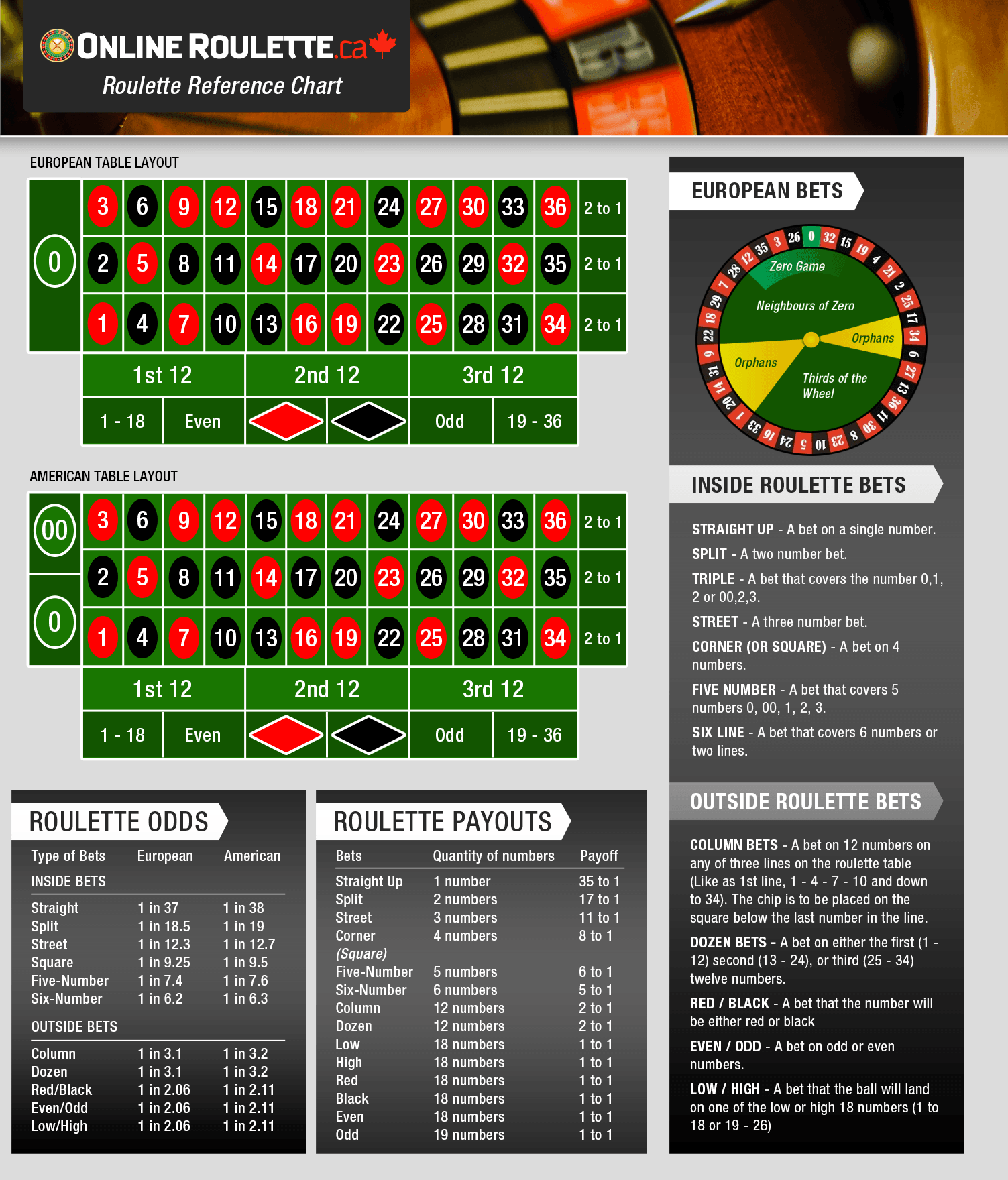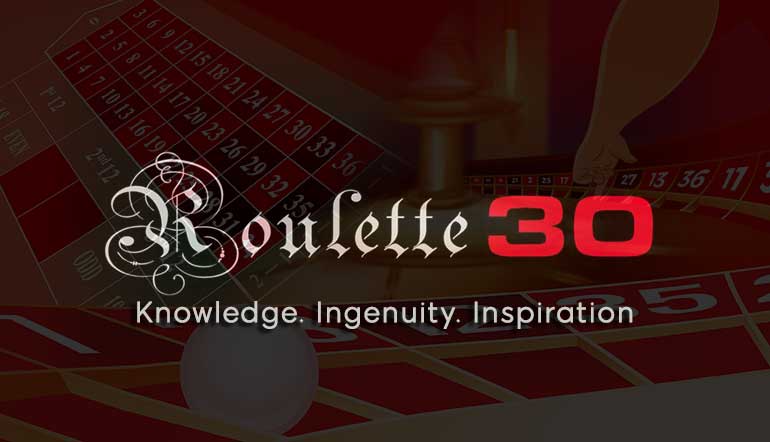Roulette is one of the most popular games that are currently available at both land-based and online casinos all over the world. It is a game of numbers and chance that is exciting to watch, but the thrill of actually participating in the gameplay is even more exhilarating.
Roulette is a game of numbers and chance. You can sit around studying the odds in roulette and the outcomes of trying to predict where that little ball will next end up but unfortunately you will be wasting a great deal of your time. Roulette is a game to be enjoyed. Sometimes you'll win.
The fact that roulette is after all a game of chance and players do not really know where the ball will land, makes the anticipation among betters one of the main reasons why this casino game is so preferred in casinos worldwide. Unfortunately, the game also has some great disadvantages. The outcome of a spin is hardly possible to be predicted, not to mention the fact that eventual expectations are associated with a complex set of mathematics that could be too hard to understand, especially for beginners.
Independent Events
As a game of chance, roulette is based on independent events. This basically means that no event is influenced by the preceding events and does not predetermine the events following it in any way. This is exactly the opposite thing of the dependent events which are associated with other casino games such as blackjack for example and which outcome is affected by the ones before it.
When it comes to roulette, this would basically mean that the outcome of the wheel's spin cannot be influenced by the previous spins and cannot affect the upcoming spins in any way. Due to the very nature of independent events, the game's outcome cannot really be predicted.
- Firstly, we consider a European roulette table, so that there are thirty-six numbers which are red and black, and a green zero. Placing an outside bet (e.g on red) gives you an 18/37 chance of winning, similarly for black. That means there is a 1/37 (=0.027) chance of landing.
- The entire mathematics of roulette, along with the main categories and sub-categories of improved betting systems whose data fill dozens of tables, can be found in the book ROULETTE ODDS AND PROFITS: The Mathematics of Complex Bets.
- No bias was required to win. The system worked on biased wheels, unbiased wheels and even computer-based games. No elaborate tracking and recording was needed. The formula computed bets as he played. All roulette play become easy and virtually automatic. The system was played for short runs against the casino. Most sessions were won in.
Of course, this has not stopped a great number of players to try cracking the roulette game by using mathematics for the purpose. This is also one of the main reasons why some of the most popular roulette systems are actually based on mathematical sequences.
CasinoCruise
Sign Up100% up to
$/€100
Royal Panda
Sign Up100% up to
$/€200
+ 10 Spins
Roulette Systems Pdf
Vegas Hero Casino
Sign Up100% up to
€200
+ 50 Spins
Best Roulette System

Casoo Casino
Sign Up100% up to
$/€300
+ 100 Spins
Roulette and Mathematics
In fact, it is exactly mathematics that seems the most obvious solution for every player to beat the dealer, and the house edge, respectively. Unfortunately for them, predicting any result in the game of roulette is simply a matter of probability and no mathematical sequences and strategies could determine the actual outcome of the spin.

As already mentioned, the entire game is based on independent events that are not interrelated. These events occur at the spinning of the wheel and the landing of the ball, but they are not influenced by any previous events, neither do they affect the ones that are to come in the future.
Blackjack Counting Missing Cards
Baccarat Main Bets
Roulette Math
Video Poker Math
Jacks or Better Math
Some specialists believe that if players understand the basics of probability theory, then it would be quite easy for them to test betting systems mathematically.
Simple bet is every bet that is made when chips are placed on the roulette table in a unique way. You can find the odds for all major simple bets in both European and American roulette.
European Roulette Mathematics

The payout ratio for placing a bet on one number in Roulette is 35:1. This basically means that if players manage to win, they will get their initial bet multiplied by 35. If a player makes a bet on either red or black, the payout ratio for this bet is 1 to 1 due to the fact that the probability of such an outcome is much bigger, and this automatically lowers the ratio.
Roulette Systems That Work

Casoo Casino
Sign Up100% up to
$/€300
+ 100 Spins
Roulette and Mathematics
In fact, it is exactly mathematics that seems the most obvious solution for every player to beat the dealer, and the house edge, respectively. Unfortunately for them, predicting any result in the game of roulette is simply a matter of probability and no mathematical sequences and strategies could determine the actual outcome of the spin.
As already mentioned, the entire game is based on independent events that are not interrelated. These events occur at the spinning of the wheel and the landing of the ball, but they are not influenced by any previous events, neither do they affect the ones that are to come in the future.
Blackjack Counting Missing Cards
Baccarat Main Bets
Roulette Math
Video Poker Math
Jacks or Better Math
Some specialists believe that if players understand the basics of probability theory, then it would be quite easy for them to test betting systems mathematically.
Simple bet is every bet that is made when chips are placed on the roulette table in a unique way. You can find the odds for all major simple bets in both European and American roulette.
European Roulette Mathematics
The payout ratio for placing a bet on one number in Roulette is 35:1. This basically means that if players manage to win, they will get their initial bet multiplied by 35. If a player makes a bet on either red or black, the payout ratio for this bet is 1 to 1 due to the fact that the probability of such an outcome is much bigger, and this automatically lowers the ratio.
Roulette Systems That Work
When making their wagers, player must always be aware of that the larger the probability, the lower the payout. Many players choose to place an even-money bet in order to get better chances of winning.
| Simple Bet | Probability (Odds) | Payout |
|---|---|---|
| Straight Up bet | 2.70% (36:1) | 35 to 1 |
| Split bet | 5.40% (17.5:1) | 17 to 1 |
| Street bet | 8.10% (11.3:1) | 11 to 1 |
| Corner bet | 10.81% (8.2:1) | 8 to 1 |
| Line Bet | 16.21% (5.1:1) | 5 to 1 |
| Column bet | 32.43% (2:1) | 2 to 1 |
| Dozen bet | 32.43% (2:1) | 2 to 1 |
| Colour | 48.64% (1.0:1) | 1 to 1 |
| Even/Odd bet | 48.64% (1.0:1) | 1 to 1 |
| Low/High bet | 48.64% (1.0:1) | 1 to 1 |
Roulette Mathematical System
American Roulette Mathematics
A total of 36 red and black slots are available on the roulette wheel when it comes to playing American roulette. There are also two green slots, representing the 0 and 00 positions on the wheel.
The probability of landing the ball on Red can be calculated by dividing the number of red slots by the total number of slots. In this case that would be 18/38, which makes 0.47, or 47%.
| Simple Bet | Probability (Odds) | Payout |
|---|---|---|
| Straight Up bet | 2.63% (37:1) | 35 to 1 |
| Split bet | 5.26% (18:1) | 17 to 1 |
| Street bet | 7.89% (11.6:1) | 11 to 1 |
| Corner bet | 10.52% (8.5:1) | 8 to 1 |
| Line Bet | 15.78% (5.3:1) | 5 to 1 |
| Column bet | 31.57% (2.1:1) | 2 to 1 |
| Dozen bet | 31.57% (2.1:1) | 2 to 1 |
| Colour | 47.36% (1.1:1) | 1 to 1 |
| Even/Odd bet | 47.36% (1.1:1) | 1 to 1 |
| Low/High bet | 47.36% (1.1:1) | 1 to 1 |
